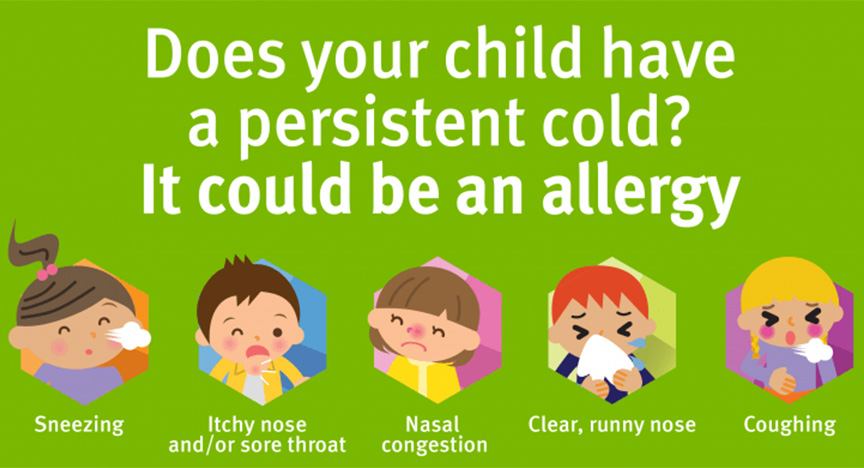
It’s spring and so thoughts turn to hay fever and allergies, but with our warm Queensland climate, allergies can be a year-round problem.
Grass allergy is the biggest ‘seasonal’ allergy for children. Children who are allergic to grasses and trees may be more susceptible in spring and summer months, however sometimes because of our sub-tropical Queensland climate, allergies can occur anytime of the year.
Allergic rhinitis (commonly known as hay fever) affects around one in five children and adults. Despite its name, allergic rhinitis is not caused by hay and does not result in a fever!
Hay fever can impact your child’s quality of life considerably. Obstructed breathing and disrupted sleep can impact normal daily activities, lack of concentration at school, and an overall reduction in wellbeing.
Hay fever can also be a risk factor for the development of asthma, sinusitis, or middle ear infections.
What are the symptoms?
Children who are sensitive to allergens may experience one of more of the following symptoms:
- sneezing
- itchy nose and/or throat
- nasal congestion
- clear, runny nose
- coughing.
Often parents don’t realise their child has allergies as symptoms may be similar to a cold or flu, however allergy symptoms tend to persist unless correctly treated.
How it can impact a child
Allergies can have quite significant effects on a child’s quality of life, including nose and ear problems and make your child’s asthma worse. Allergies can result in disturbed sleep, and even behavioural changes and difficultly concentrating at school. Your child may not be able to breathe through their nose properly, or at all, and may in fact be ‘mouth breathing’.
Treatment
For mild allergies, treatment may only be antihistamines. If allergies are worse, you should speak to your doctor and treatment for the most appropriate treatment.
Important to know
- Many parents and carers don’t recognise when their child has an allergy and often think they have a cold.
- It is important to have allergic rhinitis (or hay fever) treated.
- Left untreated, allergies can have a significant impact on your child.
- Untreated allergic rhinitis can make a child’s asthma worse.
If allergy symptoms persist for your child, speak to your GP.